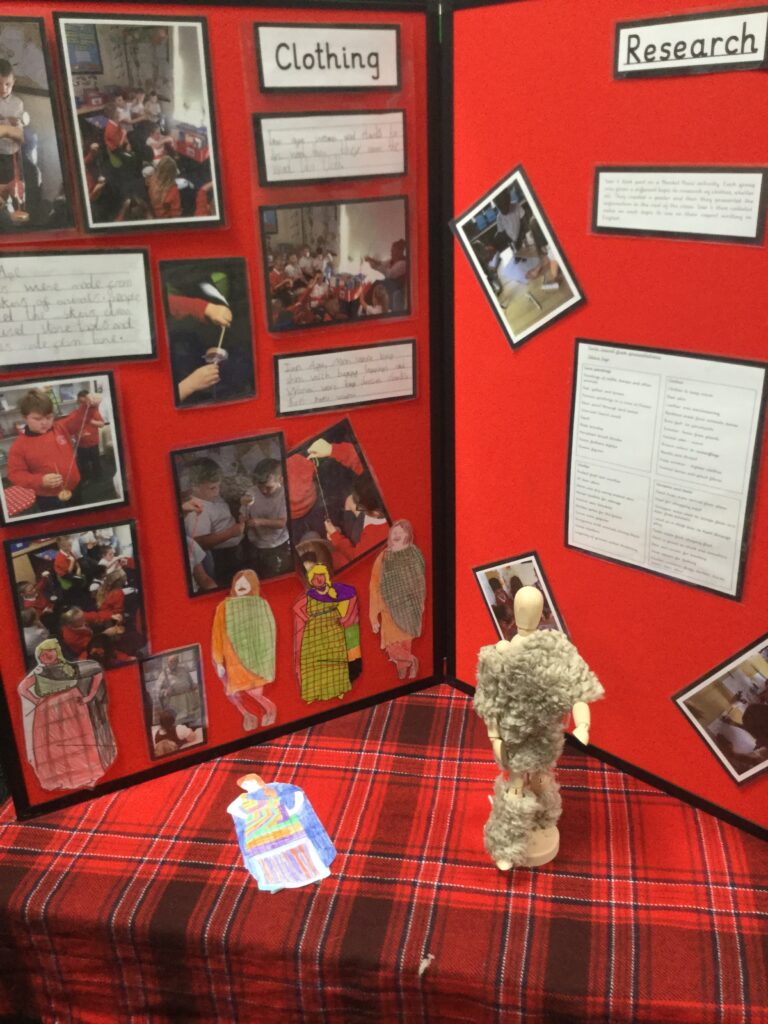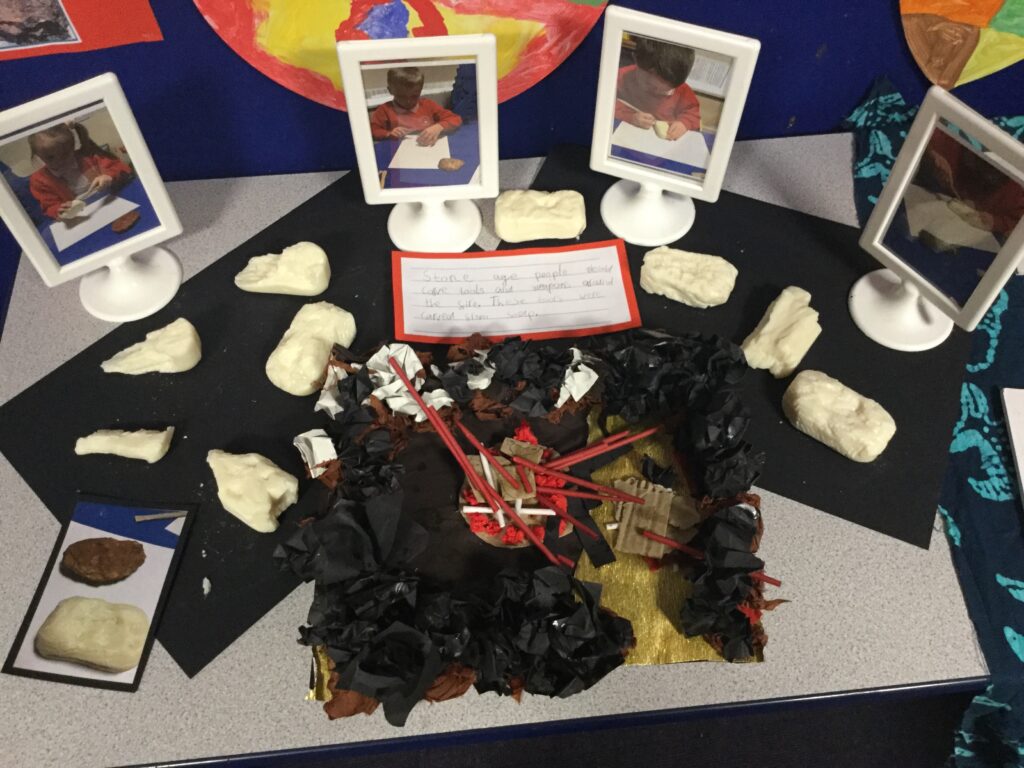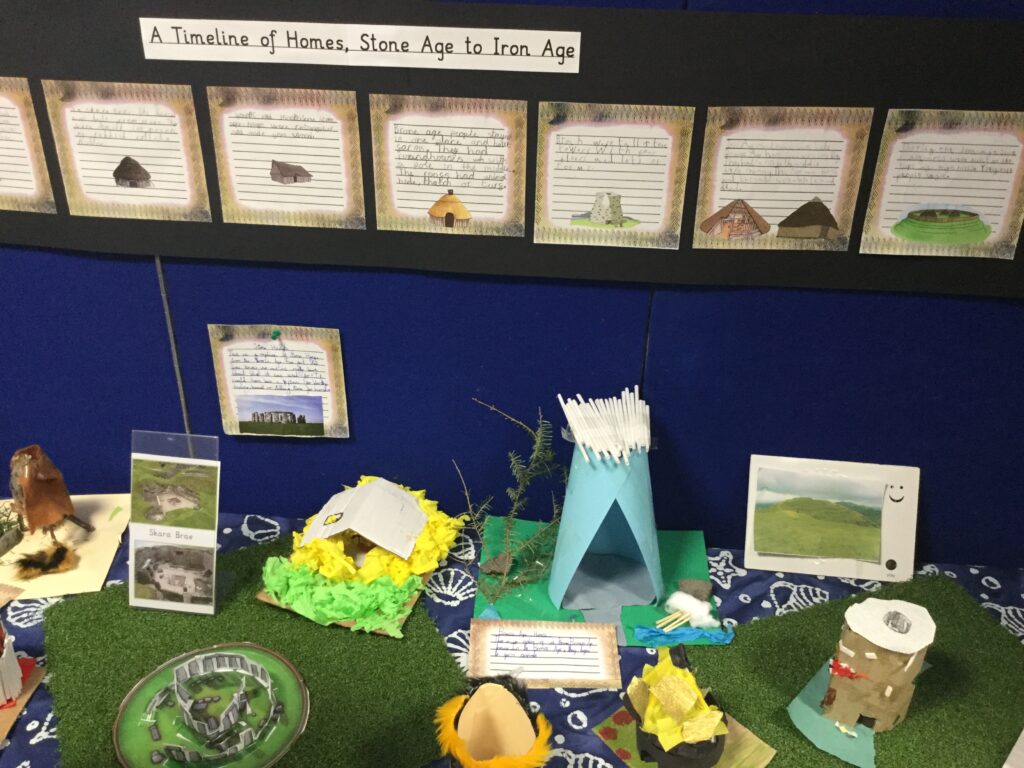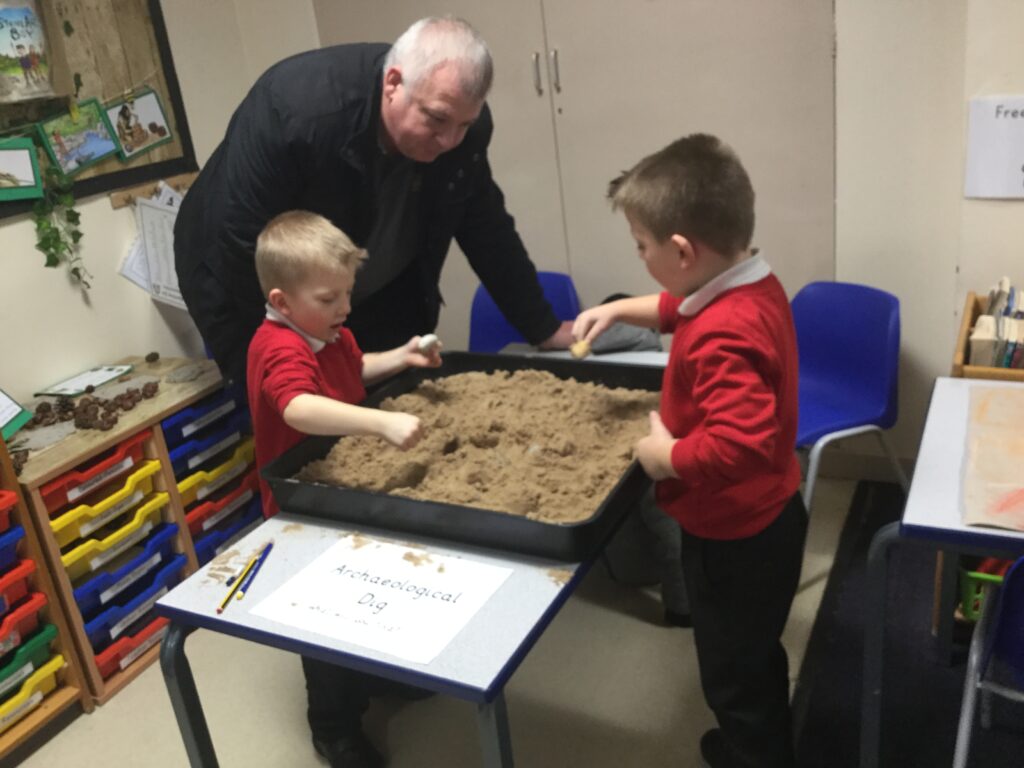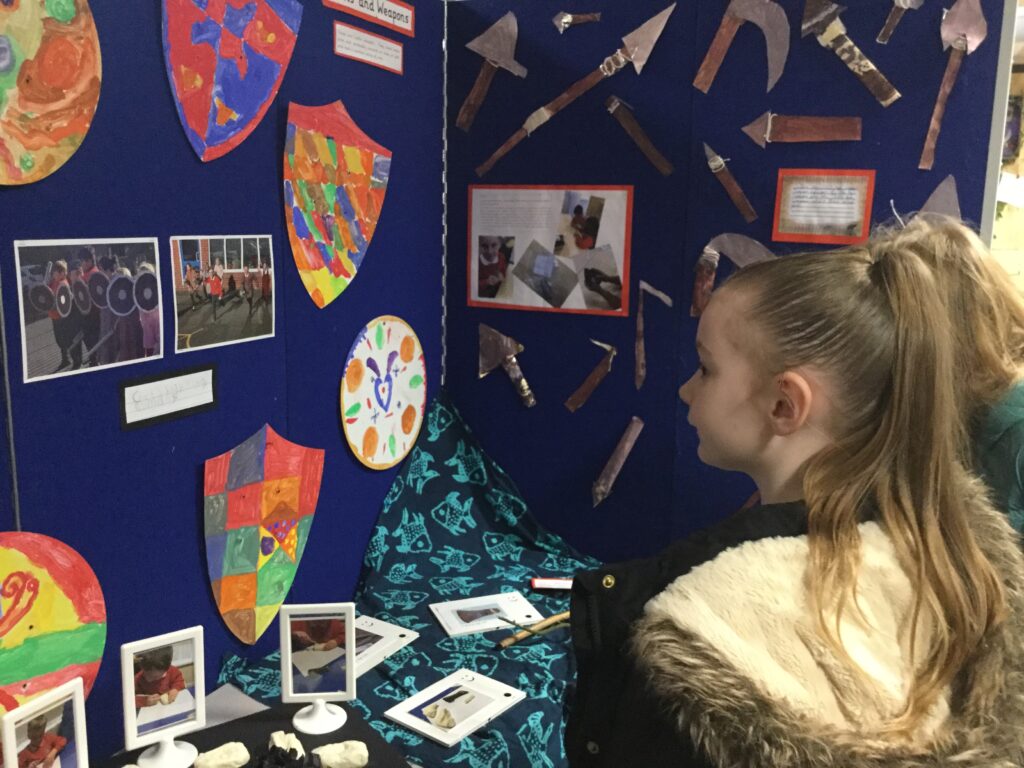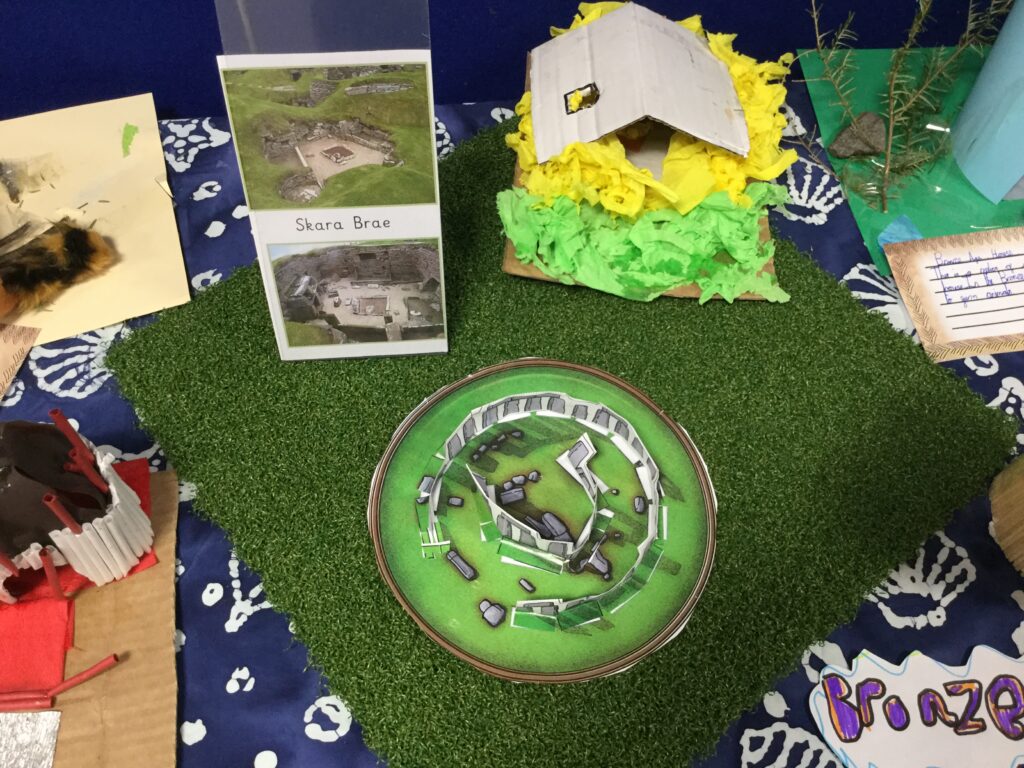Through our Topics, the history of the locality, nation and world is explored, using engaging activities at school, home and in the local area to bring events to life.
Intent
Our Topics have been selected to provide breadth and balance, with our school’s unique location at the core. Key concepts and skills are connected and repeated throughout these topics to make learning meaningful and memorable.
Specific local area History Topics are studied in depth and links are made throughout school, to previous History learnt and to the wider curriculum, to build upon prior knowledge and make learning memorable. As a Heritage School, the approach we take is to use local examples, whenever possible, as a starting point, or a way in to discovering about the history of Britain and the wider world. Where relevant, these links are continued throughout, so that pupils empathise and imagine how they would have felt, relating history to their own lives and local events. We have many sources recording the history of specific well -known individuals but, by showing children how to be historians, they can discover the unwritten history of everyday people as well. Our pupils are expected to ask questions then learn the methods to investigate and answer them, using a variety of sources.
Implementation
In E.Y.F.S. we capitalise on curiosity and show pupils how to explore the world around them. They join in with family customs and routines and talk about the past, in relation to their own life and the lives of family members. They discover similarities and differences between themselves and others, and among families, communities and traditions.
KS1 children explore changes within living memory, events beyond living memory and the lives of significant individuals in the past. This includes the Space Race, linking to local astronaut Dr Nicholas Patrick and Captain Cook, who was born in nearby Marton. Links are made with local museums, such Preston Park Museum where loan boxes of Victorian toys can be borrowed.
Lower K.S.2 children work through British History in chronological order, beginning with changes in Britain from the Stone Age to the Iron Age, the Roman Empire and its impact on Britain then on to Britain’s settlement by Anglo-Saxons and Scots and the Viking and Anglo-Saxon struggle for the Kingdom of England. Ancient Greece, a study of Greek life and achievements and their influence on the western world, gives the Year 4 children another chance to see what was occurring in the wider world and how this also affected life in Britain. They also study sites dating from a period beyond 1066 that are significant in the locality- The History of Grangetown Primary School and The Steelworks.
Upper K.S.2 children continue to make links between their knowledge of the history of Britain to that of other countries. They discover the achievements of the earliest civilizations, with a focus on Ancient Egypt. A non-European society studied that provides contrasts with British history is Benin (West Africa). A study of an aspect or theme in British history that extends pupils’ chronological knowledge beyond 1066 is the first railways, with clear local links to the Stockton to Darlington railway line and the York Railway museum. Another local study is that of the River Tees and also a study of WW2 with local links.
Impact
Pupils are shown how to be history detectives, using skills of questioning, examination, archaeology and exploration. By igniting a spark of curiosity, we provide the tools for pupils to research, discover and share. We support our children in acquiring skills in oral history, by asking questions of family members and friends, starting with EYFS and their work on naming family members in photos up to Y6 collecting wartime memories. Pupils create timelines and learn to understand their own place in history and that of their families. They learn to use a variety of sources and to express what they have discovered in different ways. By the end of Year 6 most pupils should be using historical vocabulary, participating in debates and planning and presenting projects and research. These skills are tools that can be applied to most other subjects at school thus preparing pupils for future learning and later life.
Take a look at what we get up to in our History lessons…
We set up our own museum and invited everyone to visit so that we could display and discuss everything we have learning about.
